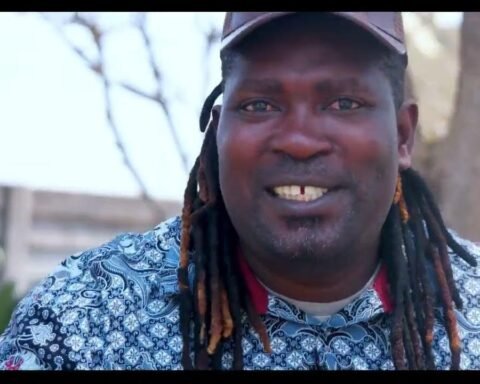Zimbabwean President Robert Mugabe has moved to rein in his wife’s ambition to succeed him after the nation’s intelligence chief warned that her campaign may stoke political violence and faces opposition from within the military, three members of the ruling party’s politburo said.
Mugabe asked his wife Grace, 51, to tone down her public criticism of veterans of Zimbabwe’s independence war who’ve supported the president since he took power in 1980 and back her main rival, Deputy President Emmerson Mnangagwa, 74, according to the politburo members, who asked not to be named because they’re not authorized to speak publicly on the matter.
While Mugabe, 93, is the presidential candidate of his Zimbabwe African National Union-Patriotic Front for elections due next year, he’s grown increasingly frail and may not be able to see out another five-year term. The intensifying battle over succession comes at a time when Zimbabwe, once one of Africa’s richest countries, faces deepening unrest over widespread unemployment, the collapse of basic services and the need of about 4 million people, more than a quarter of the population, for emergency food rations.
Security Apparatus
“Control of the military and the security apparatus is a key factor in deciding who holds the reins politically,” Showers Mawowa, deputy director of the Southern African Liaison Office, a civil-rights group, said by phone from neighboring South Africa’s capital, Pretoria, on Monday. “As things stand, it seems like Mnangagwa has the upper hand.”
The warning to Mugabe about rising anger among the war veterans and the threat of unrest came from Happyton Bonongwe, who heads the Central Intelligence Organization, the politburo members said. He also told the Joint Operations Command, a group of senior military and intelligence officers who support Mnangagwa, that serving troops oppose a faction of younger party officials known as Generation-40 that backs Grace Mugabe, who critics call “Gucci Grace” for her allegedly extravagant lifestyle.
Bonongwe also said Zanu-PF must mend relations with the war veterans, according to the party members. The CIO doesn’t answer questions from the press as a matter of policy, said an official at its headquarters who declined to give his name.
While the veterans accused the president of mismanaging the country and denounced him in July last year, they recanted last month following an intervention by Bonongwe and the military chiefs.
The National Liberation War Veterans Association view Grace’s G-40 faction as “charlatans,” its leader, Chris Mutsvanga, said in an interview.
Ex-Spy Chief
Mnangagwa, a former spy chief who played a key role in the independence struggle and was jailed during the war against the white-minority regime of Rhodesia, has previously denied that he leads a faction or desires to be president. He didn’t answer calls to his office.
Mugabe opposes the faction fighting, saying at a June 2 rally outside Harare, the capital, that it’s confusing the electorate and threatens the party’s chances against a newly formed opposition coalition led by former Prime Minister Morgan Tsvangirai.
“The president has condemned factionalism across the board many times,” said Zanu-PF’s chief spokesman, Simon Khaya Moyo.
Yet some analysts, such as Ibbo Mandaza, executive chairman of the Harare-based Southern African Political Economy Series Trust, believe the faction fighting plays into Mugabe’s hands, making it easier for him to retain power.
“Mugabe thrives on chaos and confusion,” Mandaza said in an interview in Harare.








